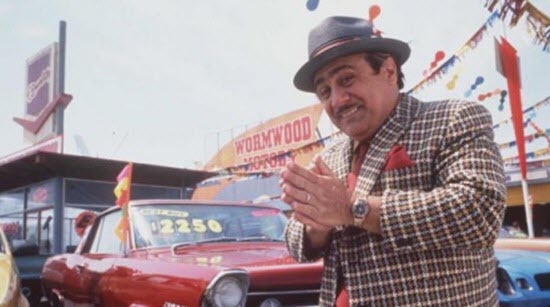
Good News and Bad News
As the financial year draws to a close, there’s good news and bad news. Bad news you’ll need to file a tax return if you’re working. The good news is, this time of year is one of the two best times to save money on a buying a car. Remember, though, Australian car companies are beholden to the financial year of wherever their parent company is based, not our own. The Japanese financial year, for example, ends March 31. 
Every year, new car buyers get two chances to save thousands on a new vehicle. Dealers go all out to clear stocks, make their numbers look better and generally cut prices to the bone.
Savvy buyers know they can drive a hard bargain and there are substantial savings to be made. But there are also some traps for the unwary, so here’s how to haggle for the best price and avoid some of the pitfalls that can make your new purchase look a lot less appealing than you first thought.
Andrew Chesterton from CarsGuide says your average car dealership is packed to overflowing with suit-wearing sharks waiting for an innocent victim to approach the doors. But the truth is, most of our fears are unfounded, while others are easily avoided.
1. Location, location, location:
One industry insider suggests every car shopper employ the 'three dealership' rule, advising buyers to visit the three closest dealerships to their house, starting with the one that is furthest away and working their way to the one closest to their home.
You'll have already researched your new-new car purchase on sites like this, but the thinking is that by the time you get to the dealership closest to your house, you’ll know exactly what you’re after, and have a fairly solid idea of what that car is worth - and which location is willing to cut the best deal. Dealers are also incentivised by the manufacturer to sell to customers that live within their Prime Market Area (PMA), so you’re in the box seat to get a better deal with the dealership closest to your home, too.
2. Timing is everything:
It's a common misconception that car dealers make the bulk of their money from the margin they earn selling new cars, but actually, that's not always the case. For one, the margin on a popular, sharply priced car (one that might read $19,990 drive-away, for example) can be as little as $300.
Instead, dealers make their profits through after-sales (servicing and the like), added extras (which we'll touch on in a moment), and the whopping rewards paid to them by manufacturers for hitting certain sales targets, which are usually calculated monthly and annually. So shopping toward the end of the month is ideal, while shopping in the final weeks of the financial year is perfect, too.
The prime window is 10 to 12 days before the end of the month," says our insider. That’s the perfect time to get a deal done, and a car delivered, before the end of the month.
3. Release the pressure:
Settling on a sharp price for your new car is one thing, but you don’t want to chip away at those savings by getting carried away with optional extras like tow bars, tinting or roof racks.
Instead, consider shopping for the car only, and settling on a price, before returning on a separate visit to negotiate on those extra items. That way you get a moment to consider what you actually need, shop around, and let the emotion of buying a car subside a little before you commit to more spending.
4. The devil is in the detail:
When you buy a new television, they don't sell you spontaneous combustion protection, largely because that's the kind of thing you expect your television to just kind of not do all by itself.
Likewise, there's a reason there’s not a booming rust-proofing industry in Australia (or anywhere, for that matter) and it’s not because car dealers are doing such a comprehensive job at the point-of-sale. It's because you don't really need it. In fact, if you’re about to drop a substantial amount of cash on a car that can't be taken outside without extra rust protection, you might want to reconsider the purchase.
You might need rust protection if you live inside an actual ocean.
Paint protection? That's called wax. Tyre insurance? Unnecessary.
5. Be prepared to pull a Craig David:
Finally, always be prepared to utter the immortal words of forgotten UK pop star Craig David, and mean them when you say: "I'm walking away."
With dozens of car brands and hundreds of dealerships scattered across the country, the power is firmly with you when it comes to choice. So if you think you can do better, there’s a very good chance you can.

